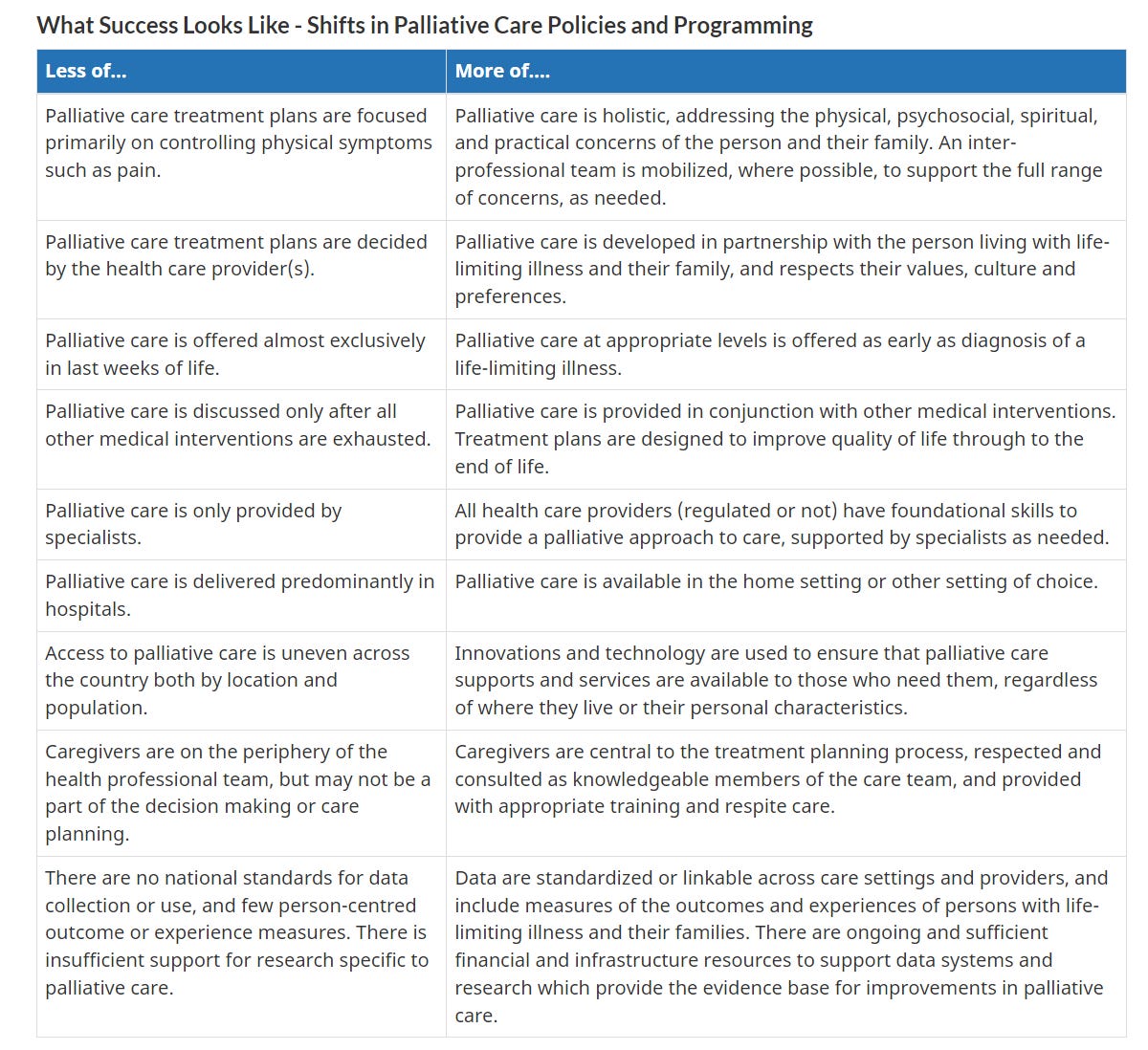Four (or five) moments, that's all it takes.
What are the four (or five) metrics that really (I mean REALLY) matter when it comes to palliative care in Canada
Most of you know that I really wanted Ryan Reynold’s aka Marvel’s Deadpool to be a spokesperson for palliative care in Canada.
Sadly Mr. Reynold’s hasn’t gotten back to me.
I proposed other spokespeople as well but they haven’t gotten back to me either.
So, maybe the best way to have a spokesperson for palliative care in Canada is a completely CGI character.
Enter Colossus.
Colossus (character) - Wikipedia
“Colossus (Piotr "Peter" Nikolayevich Rasputin) (Russian: Пётр Николаевич Распутин) is a character appearing in American comic books published by Marvel Comics. Created by writer Len Wein and artist Dave Cockrum, he first appeared in Giant-Size X-Men #1 (May 1975).
A Russian mutant, he is a member of the X-Men. Colossus is able to transform himself into metallic form, making him the physically strongest of the team. He is portrayed as quiet, honest, and virtuous. He has had a fairly consistent presence in X-Men-related comic books since his debut. A talented artist, he only reluctantly agrees to use his powers in combat, feeling it is his responsibility to use his abilities for the betterment of human- and mutant-kind.
Wizard ranked Colossus at 184 on the "Top 200 Comic Book Characters of All Time." In 2006, IGN placed Colossus in the 10th spot of their list of "The Top 25 X-Men." In 2013, ComicsAlliance ranked Colossus as #22 on their list of the "50 Sexiest Male Characters in Comics."
In film, Donald MacKinnon made a cameo appearance as Colossus in X-Men before X2, X-Men: The Last Stand, and X-Men: Days of Future Past while Stefan Kapičić voices a separate iteration of Colossus in Deadpool, Deadpool 2 and the Marvel Cinematic Universe film Deadpool 3.”
So what does this have to do with palliative care in Canada?
I like this quote about heros because it reminds me of metrics in palliative care.
Its important to measure things, especially in healthcare. You can’t fix, what you don’t measure.
Often, when we measure palliative care, we look at indicators or metrics that are proxies for palliative care. By proxies, I mean they measure an aspect or element of palliative care but not necessary directly measure the care per se.
The Federal Framework on Palliative Care in Canada lists several specific improvements in policy and programming that would define “success” if positive shifts were to be affected.
Framework on Palliative Care in Canada - Canada.ca
For me, if I was to come up with four (or five) perfect metrics for palliative care, they would be:
Did the decedent have access to medical care?
Did the decedent receive palliative care?
Was that care high-quality?
Was that care timely?
(what is the definition of palliative care?)
Did the patient have access to medical care? Clearly this is a foundational question. Those who do not have access to medical care clearly won’t have access to palliative care or any other medical care. Many vulnerable populations such as the homeless and our Indigenous populations often lack even basic access to medical care and thus, one cannot expect them to access to palliative care without access to medical care.
Did the decedent receive palliative care? Seems like a basic question but this is harder to measure than one might think. See number five.
Was the care high-quality? Ontario has a Quality Standard for Palliative Care, which consists of 13 Quality Statements. There is currently work being done on a national Quality Standard for palliative care in Canada.
https://www.hqontario.ca/evidence-to-improve-care/quality-standards/view-all-quality-standards/palliative-care
Was the care timely? We often refer to “early” palliative care. Palliative care should/could be available from the time of diagnosis but it is often rationed due to scarce resources like hospice beds and HHR like palliative care physicians. “Timely” is a much better way to describe the concept because it explicitly implies that the care was provided at the right time, rather than simply early, when it may not necessarily have been. Economics matters.
Finally, a firm and concrete definition of palliative care is required to allow proper measurement. If one has a very liberal or expansive definition of palliative care, it is more difficult to measure something that is vague and nebulous. The definition of palliative care is a interesting topic and probably deserves its own article but it is worthwhile to mention here because you can’t measure something if you can’t define it.
Back to Colossus. The idea of a CGI spokesperson for palliative care is tempting. It removes the need to deal with temperamental and distracted actors who focus more on sports teams and marketing rather than public service.
So if we can’t have Deadpool, maybe we can get one of his B-level teammates.






